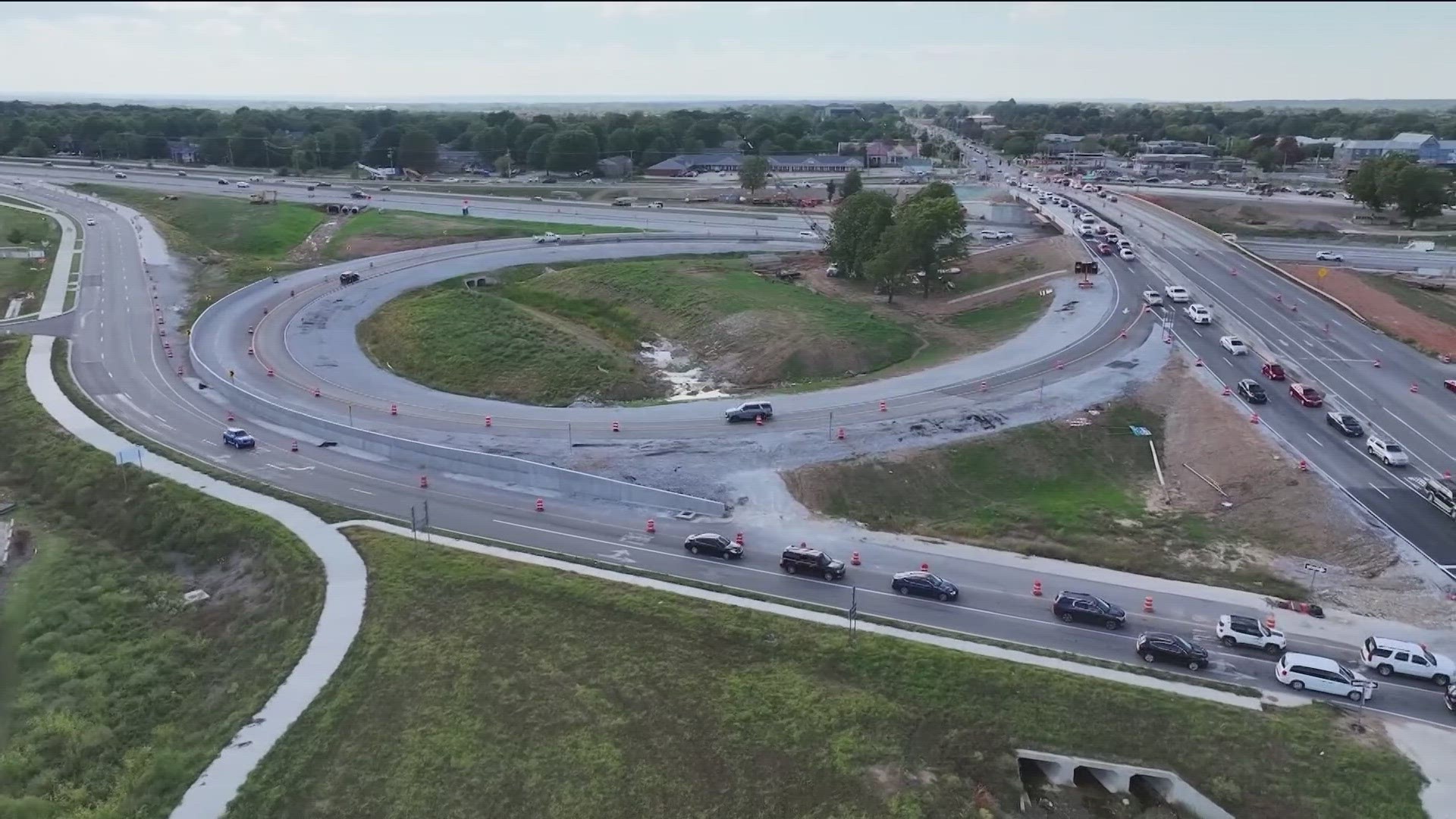ARKANSAS, USA — Conversations about implementing a plan for more affordable housing in Fayetteville have been in the works for years now. The Fayetteville City Council recently participated in a discussion to get a better understanding of where the city is when it comes to housing.
Long-range planning and special projects manager for the city, Britin Bostick, said she presented three presentations to the city council discussing the housing population date and land use policies. In the recently released report, the major factors the city says contributed to residents struggling to find housing in an affordable price range include a higher than projected population growth, record-breaking enrollment at the University of Arkansas, changes due to high-interest rates, and delays in housing production due to supply chain issues.
Bostick said the city is working to catch up. "During COVID, we had a couple of years of delays and lags where we weren't getting as many housing units completed at the same time that both the city and the university student population were growing. And so we're a little bit behind, we're about 1,500 housing units behind our demand right now. So the encouraging thing is, we're building a lot of housing this year, and that's helping us get caught up."
One of the key findings in the report says Fayetteville needs about 1,000 new units of housing annually to keep pace with the projected population growth. Bostick said right now, the city's actual growth is exceeding that by about 78 percent.
"So you're looking more like 1,800 housing units a year to keep pace. And if you say, 'Oh, well, that's more than we could build,' funny enough, this year, we've completed about 1,400 housing units in Fayetteville as of the end of September. So we're actually on pace to keep track with demand this year," Bostick said.
Immediate plans for the city include continuing to implement the 71B corridor plan— which would mean looking at land rezoning.
"That's an area that already has infrastructure. It has streets, it has water, it has sewer lines, maybe it needs some sidewalk improvements, maybe some other improvements," Bostick said. "If we were to look at allowing housing in that same area where it's already only commercial but it has all those great infrastructure investments already, that could be a good solution."
Bostick said the type of housing for that area would be multifamily apartments, which would be good for growth because it'll offer a lot of units in a small area. "We have a lot of people who are looking for apartments and looking for a more urban lifestyle. And it's really hard to get an apartment like that in Fayetteville, believe it or not, because there's pretty high demand."
South Yard Lofts are a great example of what developers can do if the zoning allows housing. It's also a great example of the 71B plan being implemented: At Evelyn Hills, most of the corridor commercial use is allowed but there's no housing opportunity, however, if this location were rezoned, Fayetteville could see even more housing in the future.
Duke McLarty, the executive director of groundwork workforce for the NWA Council is excited for the City of Fayetteville to focus on the potential of the 71B College Avenue corridor.
"I think that has real potential to bring a lot of housing along a central corridor. That is right for its next life. One of the benefits of focusing on our corridor development— and this goes throughout the region— is that our public transit will, I think, benefit greatly by these housing and residential developments being included on these transportation corridors," McLarty said.
He said three other big cities in the region, Springdale, Rogers, and Bentonville, are also taking steps to create affordable housing, but each is dealing with issues with zoning codes.
"It's our zoning codes, you know, they were established 50 to 60 years ago. They've been changed, they've been altered, but in a bit of a parcel-to-parcel and a bit of a piece-meal approach. The cities over that time have really taken a total reexamination of why their zoning is what it is, and I think they're all thinking about that. And again, approaching it in their own way, but in a way that fits each of their municipalities," McLarty explained.
As far as what's considered affordable housing... McLarty's organization is focused on 50%-100% of the area's median income. "These are folks who make too much to qualify for government subsidy programs, but whose paychecks have not kept up with the recent dramatic increase in home prices. So that's the group that we're focused on. That equates to $46,000 a year to $92,000 a year."
In the October presentation, Bostick reported that of the 18,535 Fayetteville households earning less than $50,000 annually, 72.8% are cost-burdened by housing costs.
Other takeaways:
- More than five times the number of cost-burdened households live in rental housing than in owner-occupied housing.
- Fayetteville needs an additional 6,000 housing units available below $875 per month and nearly 5,500 housing units available below $500 per month to relieve cost-burdened households.
Bostick said the long-range planning department will lay out rezoning proposals for the 71B Corridor plan to the city council at the end of this month. Another recommendation for the city plan was to develop and implement the Growth Concept Map in City Plan 2040.
Watch 5NEWS on YouTube.
Download the 5NEWS app on your smartphone:
Stream 5NEWS 24/7 on the 5+ app: How to watch the 5+ app on your streaming device
To report a typo or grammatical error, please email KFSMDigitalTeam@tegna.com and detail which story you're referring to.

